Today, everyone is already aware of the new virus spreading through the World and which is affecting in different ways to different countries and populations.
It all started when China announced in December 2019, they have found spreading in Wuhan this new virus and that it had already then affected a big amount of people and it was spreading quickly.
Paranoia started immediately, after seeing the city of Wuhan got practically paralyzed and deserted while most people were advised to stay at home to avoid the virus spreading even more. They started the construction of new hospitals and everything seemed end-of-the-world like.
People all over the world started to empty toilet paper (Hallo Germany!) and disinfection products shelves in the supermarkets, buying face masks and pasta, and, believe or not, not wanting to drink Corona beer! I wouldn’t drink Corona certainly, but for other reasons.
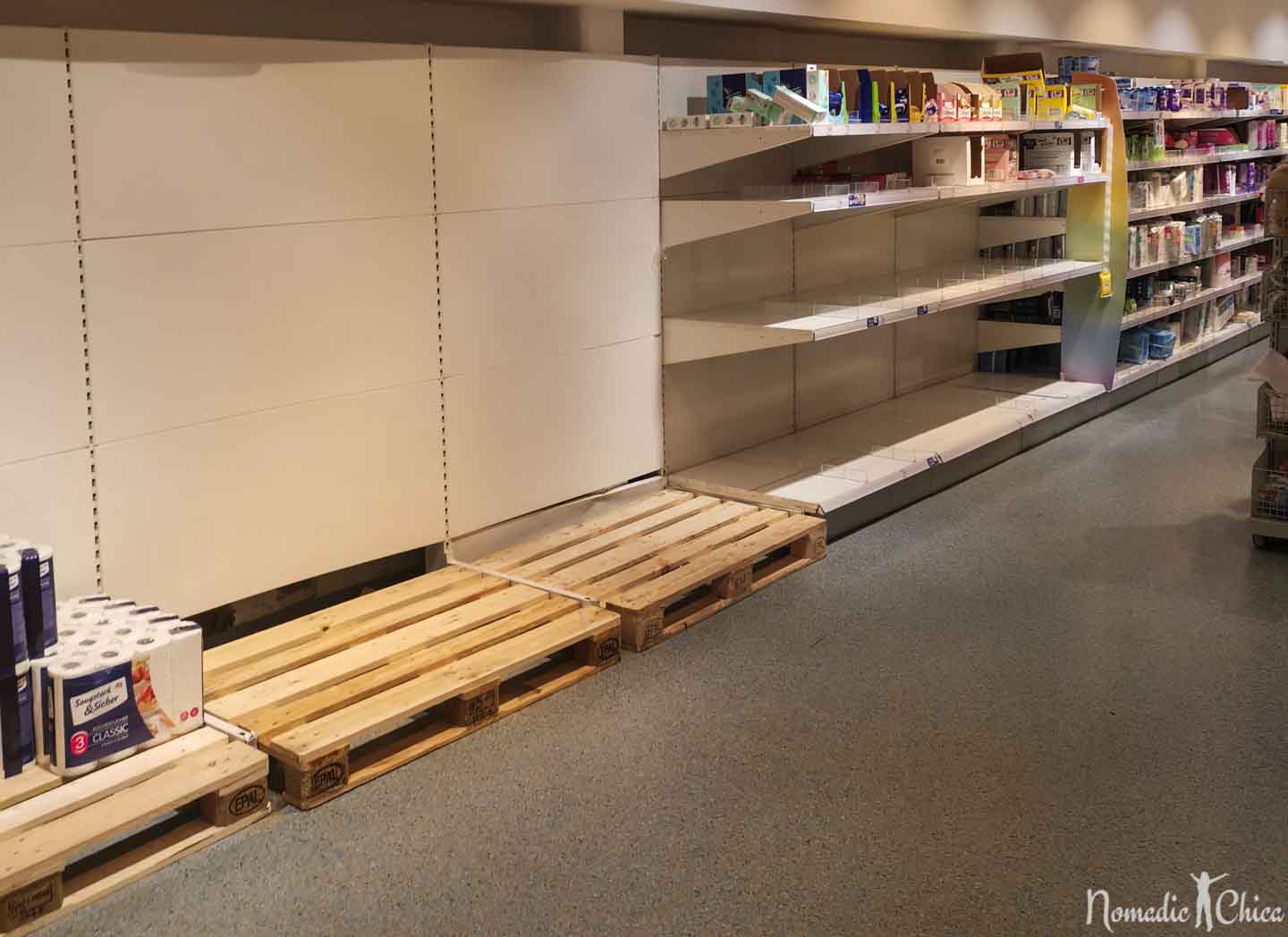
I’m not only a blogger but also a trained health professional, I worked in respiratory care for several years and I was working as a respiratory specialist in the Intensive Care Unit during the H1N1 emergency in Chile in 2009.
I want to help you to have a better idea of what this new virus is, how to prevent it and how it can affect your travel plans within the next months. I have already three trips canceled that were due to happen in March and April, and it’s certainly affecting not only the whole tourism industry but even the international stocks market.
PLEASE, KEEP IN MIND THIS IS AN EMERGING STORY; CONTINUE TO CHECK OFFICIAL RESOURCES FOR UPDATES.
THIS ARTICLE SHOULD NOT BE USED TO DIAGNOSE OR TREAT YOUR SYMPTOMS. CONTACT YOUR HEALTH CARE PROFESSIONAL FOR MEDICAL ADVICE IF YOU ARE ILL OR HAVE MEDICAL QUESTIONS.
According to the WHO, “Coronaviruses are a large family of viruses that are known to cause illness ranging from the common cold to more severe diseases such as Middle East Respiratory Syndrome (MERS) and Severe Acute Respiratory Syndrome (SARS).”
There are several Coronaviruses and they are zoonotic viruses, meaning they are usually found in animals, and occasionally, humans get infected like the SARS-CoV and MERS-CoV, transmitted by civet cats and dromedary camels respectively.
You can check more facts in this article by Dr. White, a fellow travel blogger, and a doctor
The new Coronavirus, also known as COVID-19 is provoked by the SARS-CoV-2 and it’s still not clear whether it was spread through bats or pangolins, used in China as medicine. It’s not supposed to be transmitted from humans to an animal, but it was just found the first case in a dog in Hong Kong, presenting a weak positive for Coronavirus.
Every year, there are about 290,000 to 650,000 deaths due to respiratory illness, mostly due to the normal flu related to the Influenza viruses’ subtypes A(H1N1) and A(H3N2). This is an estimated 1 billion cases worldwide, and up to 45 million cases in the U.S. per year!
And I don’t see anyone freaking out because of this, I’m I wrong?
The World Health Organization has not declared the new Coronavirus a pandemic, like in 2009 with the H1N1 pandemic, which is estimated to have killed up to 575,000 people worldwide, but it’s being said that Coronavirus could turn into the worst travel crisis after the September 11 terrorist attacks in the US.
There are approximately 102,478 cases and 3,491 deaths, reported worldwide on March 7th of 2020, but the overall stats around COVID-19 are not yet clear. Here you can check daily updated reported cases.
On the positive side, until now, it’s estimated that about 80% of people having Covid-19 have recovered from the disease without needing special treatment.

While we are still learning about how COVID-19 affects people, we know most probably if you get it, it will be just like strong flu.
On the other side, it has been estimated that around 1 out of every 6 people who get COVID-19 becomes seriously ill and develop difficulty breathing, but the numbers are still not yet accurate enough as the virus is still in development.
It could be risky if you are above a certain age or have pre-existing medical conditions like the following:
- Over 80 years old
- Asthma
- High blood pressure
- Heart disease
- Lung disease
- Cancer
- Diabetes
The Coronavirus has an estimated incubation time of 1 to 14 days and the usual symptoms of COVID-19 are very similar to the ones of the Flu and they are usually mild and begin gradually.
You will most probably get tiredness, dry cough, fever, nasal congestion, runny nose, sore throat or even diarrhea.
It’s important to notice that some people become infected, but they don’t develop any symptoms, and this has helped to spread the virus so quickly.
What to do if you have flu symptoms today
The most important thing to do if you have flu-like symptoms is to visit your doctor, especially if you have fever, difficulty breathing, and/or are part of the risk group.
Then, take all the measures to avoid spreading the virus around you with your family, relatives and any possible person in touch with you. That’s why there’s a general suggestion to go into a 14-day quarantine at home if you have the virus with mild symptoms.
You should seek early medical care if you have
- Fever
- Cough
- Difficulty breading
You don’t need to wear a mask unless you are having the virus! There’s a worldwide issue with people wearing masks even when they don’t have the COVID-19.
You should only wear a mask if you are diagnosed with it, with the aim of preventing to keep spreading it around you. These are very important to keep them available also for medical personal who need them to keep taking care of people.

The coronavirus, as most of the viral particles need a vehicle for its transmission.
Usually, this is any surface in contact with the mucus or saliva of the one infected, and they can get inside your body through your eyes, mouth, or nose.
It’s yet not clear how many days the Coronavirus lasts on surfaces outside the body, but for other types of coronaviruses like the SARS and MERS it’s known they can last from few hours to up to nine days, but this depends on several factors like temperature, light, and other conditions.
So yeah, you can still order online and your package most probably won’t have any trace of the COVID-19 even if it had contact with it previously.
Killing the virus is relatively easy, just disinfect the surface and wash your hands properly (you can find other songs than Happy Birthday that lasts more than 20 seconds if you are already tired of this one) before touching your face, eyes, nose or mouth. This is the biggest issue because we tend to touch our faces without even noticing.
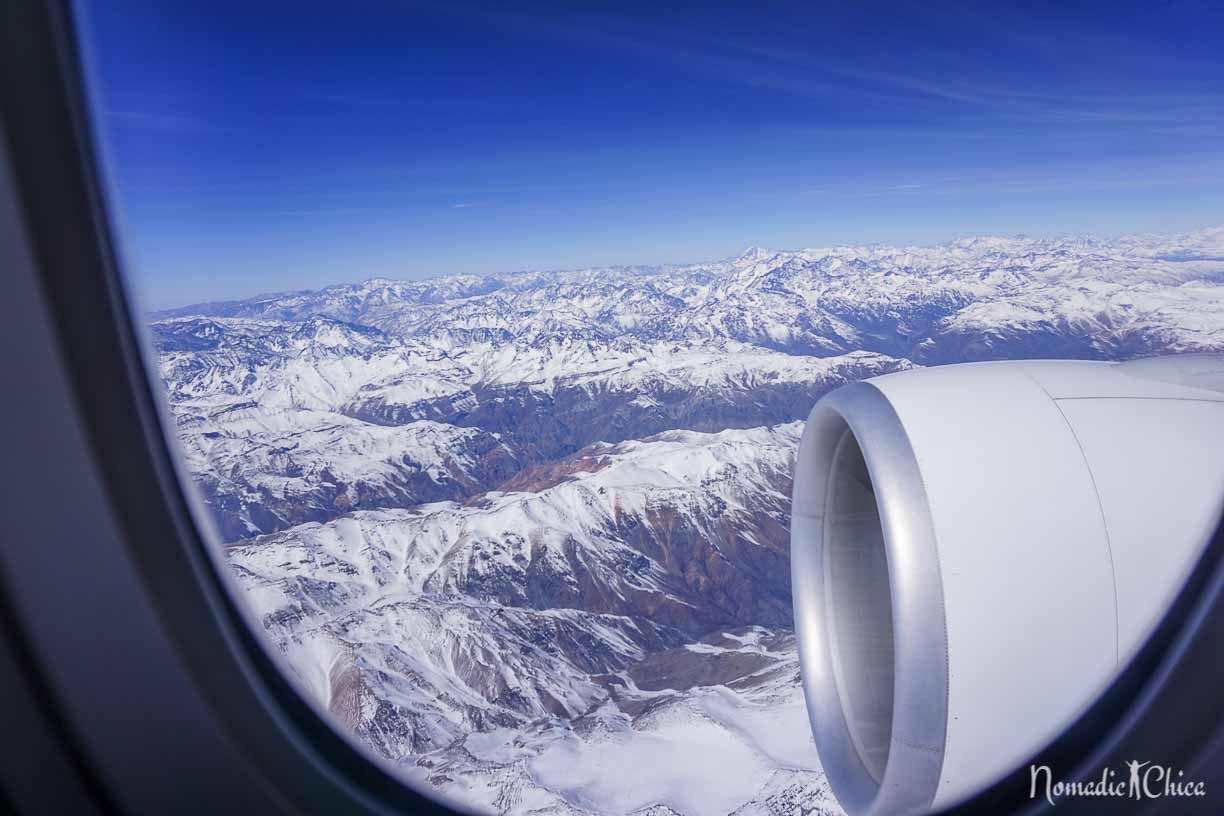
Inside airplanes, for example, most viruses and other germs do not spread easily through the air thanks to how air circulates and is filtered, although it is still a good idea to avoid contact with sick passengers and wash your hands often. There is not enough evidence on wiping the surfaces around your seat will kill the virus, and this could lead to being more relaxed on the measures needed to get yourself virus-free.
On the contrary, it might be a good idea to postpone your cruise trip as they gather large numbers of people in frequent and close contact with each other, coming from different locations.
The other thing to keep in mind is, usually, cruise ship air conditioning systems are not designed to filter out particles as small as the coronavirus, allowing the disease to rapidly circulate to other cabins.
There are interesting data from the Diamond Princess, guiding to think the case fatality for COVID-19 might be lower than it’s though, the cases inside the ship are so high that it’s even considered as a unique category in the world count for COVID-19 cases around the world.
The new cases of Coronavirus are affecting people’s lives all over the world, all kind of business, and especially the travel industry has been affected by this.
It’s already been reported about €10 billion lost within the Italian tourism industry, the European airline Flybe has collapsed, and several airlines, like Iberia, Alitalia, and Lufthansa, have already canceled temporarily their flights to Israel, China, and several other countries for the next weeks.
It’s known the spreading of the virus is quicker due to people changing their location and if you are carrying the virus without symptoms you can pass it to several people around you without knowing.
Is this a reason to panic? I don’t think so.
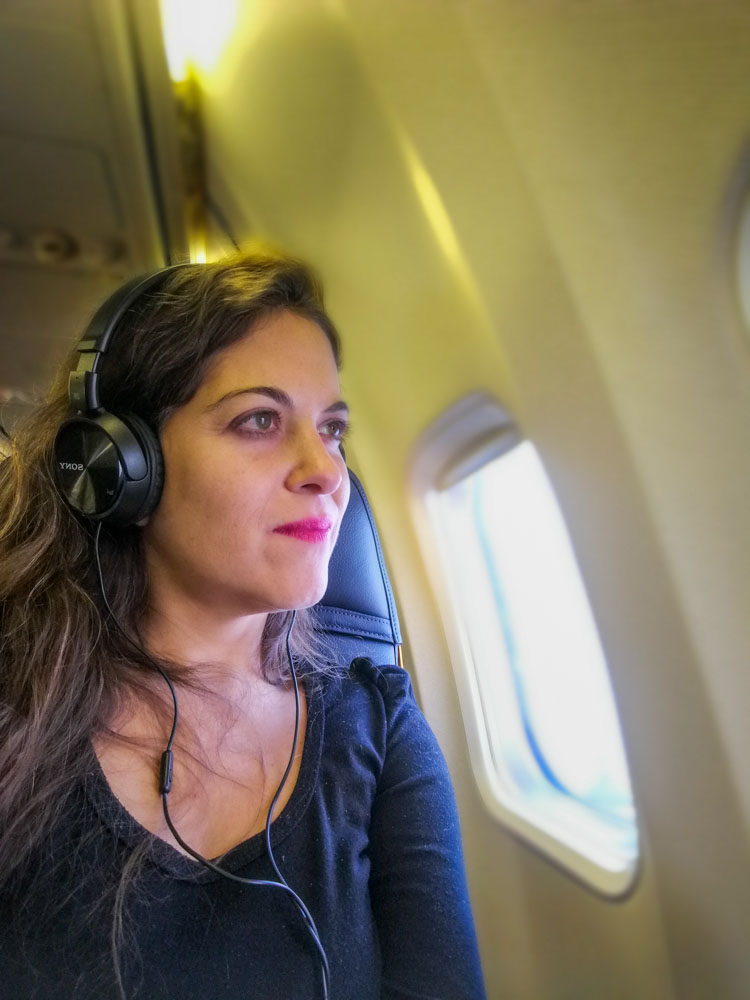
Unless you are at a higher risk, or your relatives or people you are usually related I would say with normal precautions your life should go on as normal as possible.
You can check on the CDC website the travel recommendations by country and the risks, going from a level 1 to 4.
The main issue of traveling in times of the COVID-19 is that your plans might be forced to change at any minute, so this could mean spending more time or money than you have planned.
Most of the massive fairs and events have been canceled, like the Mobile World Conference, ITB Berlin, Berlin Travel Fest, TBEX Europe, SXSW, F8, and even the last two days of the historic Venice carnival, and the famous Tokyo’s cherry blossom festival was canceled this year because of the coronavirus outbreak. I just got to notice also the Mandelblütenfest in Gimmeldingen got canceled this year, so I won’t get my Weinschorle and delicious pulled pork sandwich there.
This might mean either your flight can be canceled, or they will ask you to go on a 14-day quarantine upon arrival if you come from these countries to certain destinations.
The WHO is working closely with the International Air Transport Association (IATA) and they have jointly developed a guidance document to provide advice to cabin crew and airport workers.
Be prepared to be asked multiple questions about whether you have visited destinations where there are cases of COVID-19, and even some countries are having a form listing all the cities they have transited through recently that new arrivals must fill.
Several airlines are reducing their flight schedule as well as canceling flights, but the good thing is that most of them are reacting helpfully to their customers, and most of them are also offering a free cancellation or a rebooking.
You can check more details about travel information and Coronavirus on this complete article by a fellow travel blogger
On a more positive side, prices in several regions are falling, especially in Asia where flight tickets are falling from -8% to -38%, also hotel prices are seeing a substantial decrease in the rates since the wake of the spread of the virus.
So, being practical, the best advice I can give you if you still want to keep traveling, as usual, the smartest thing to do is making flights, and Hotel reservations in a platform where you can cancel your bookings without any fees until closer to the days of your trip, like in Booking.com.
The other VERY IMPORTANT thing to have, not only now, but in any trip is a travel health insurance covering any possible case, including diseases, pandemics, accidents, etc.
Most credit cards have insurances with different policies you definitely need to check before traveling possibly including a “cancel for any reason” for your travel insurance, and other good options for travelers that are also super-flexible is Safety Wing, in which you can pay monthly your insurance.

If you are healthy and don’t want to change your travel plans or perhaps all your bookings are non-refundable, and you really don’t want to waste the money already spent I would ask myself some questions:
- I’m healthy enough to be ok if I get the Coronavirus while traveling?
- Do I risk anything in case I get sick, or there are any restrictions extending the length of my trip?
- Can I deal with the uncertainty of the development of the virus?
- Do I have proper Insurance?
When you are planning your trip you might want to take certain measures as Booking hotels that are possible to cancel close to the reservation date, perhaps buying flights or other kinds of tickets under the more flexible fares allowing rebooking or cancellations.
Check the constant updates about new travel bans and restrictions, IATA is having a daily updated outbreak information
General recommendations for travelers are:
- Try to avoid contact with sick people, keeping a distance of at least one meter.
- Avoid touching your eyes, nose, or mouth with unwashed hands.
- Clean your hands often by washing them with soap and water for at least 20 seconds or using an alcohol-based hand sanitizer that contains 60%–95% alcohol.
- Keep a cough/sneezing etiquette, this means to cover your mouth and nose with a flexed elbow or paper tissue and disposing of the tissue immediately
Another recommendation is to stay calm and avoid freaking out. Fear is probed to affect your immune system and especially today it’s a good idea to avoid panicking due to the current situation. Take the proper measures you already know and stay calm.
If you travel to an affected area, and after your returning, you should self-monitor your symptoms for 14 days and if symptoms occur, such as fever, or cough or difficulty breathing, you should seek medical advice immediately.
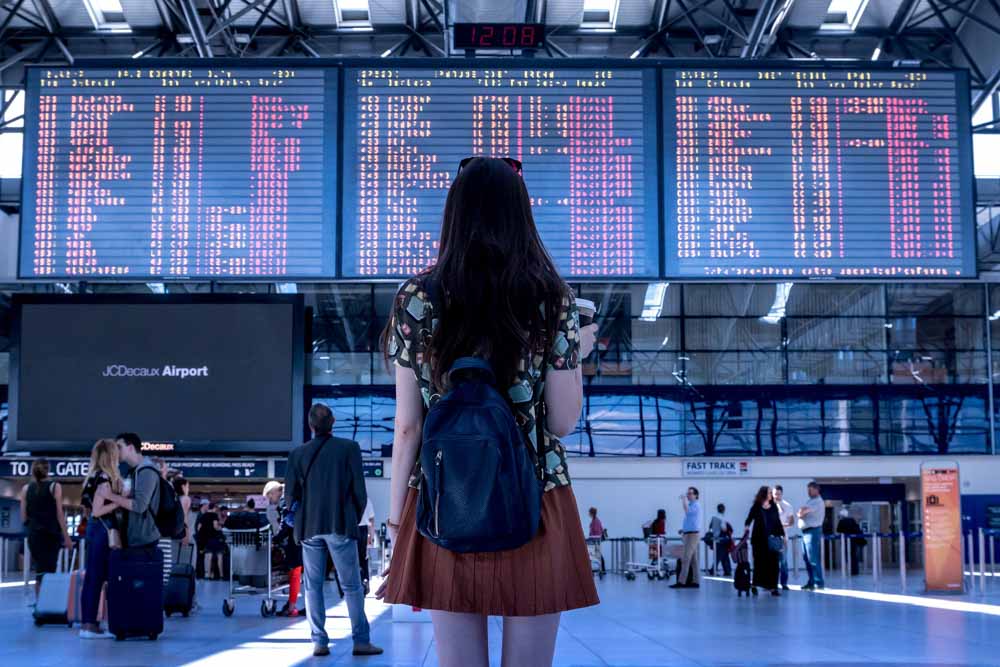
Conclusion
The new virus COVID-19 is spreading all over the world very quickly and many people and markets have been affected.
Despite the fear many people are having due to several alarmist media and the natural aim to preserve own health, many people are avoiding traveling during this season.
We should be informed instead of fearing reality and being educated among the risks and precautions should allow you to make informed decisions and decide whether should you cancel or go to your next trip.





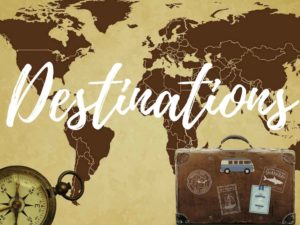


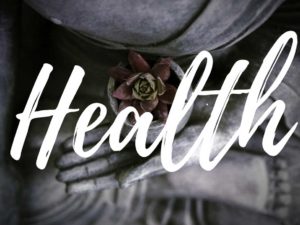






0 Comments